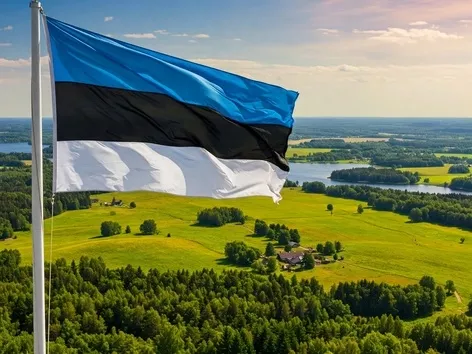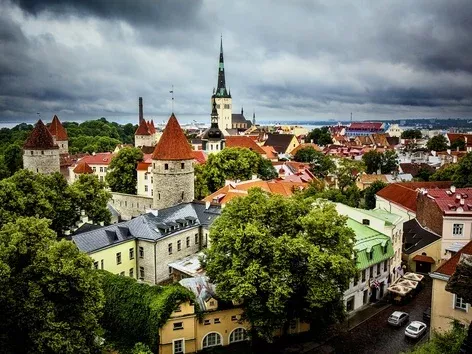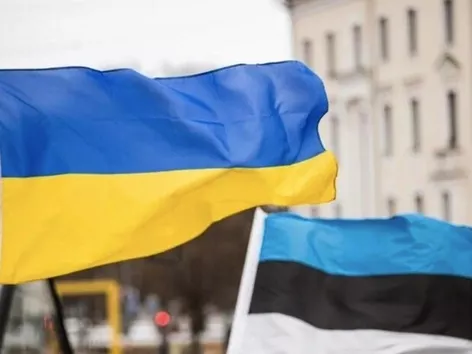Émigration vers l'Estonie : comment les Ukrainiens peuvent-ils s'y installer en 2025 ?

L'Estonie est un pays proche des Ukrainiens en termes de mentalité et de traditions culturelles, et est également connue dans le monde entier pour son soutien aux réfugiés militaires. Découvrez comment émigrer en Estonie en 2025, y compris l'obtention du statut de protection internationale, l'emploi et l'éducation.
La vie en Estonie présente de nombreux avantages pour les Ukrainiens, donc le flux d'immigrants ne diminue pas. L'Estonie a certaines nuances des processus migratoires pour les Ukrainiens. Conformément à la législation actuelle et aux accords internationaux, ces détails sont couverts sur les sites Web suivants :
– Police et Garde-frontière estoniennes (Politsei- ja Piirivalveamet);
– Ministère de l'Intérieur estonien (Siseministeerium);
– Site Web du gouvernement estonien (Eesti.ee) – règles pour obtenir un permis de séjour en Estonie;
– Ambassade d'Estonie en Ukraine;
– Portail européen de l'immigration (Commission européenne – Portail de l'immigration de l'UE)
Pour rendre le déménagement en Estonie rapide, pratique et réussi pour les Ukrainiens, nous avons compilé des réponses aux questions les plus fréquemment posées dans cet article :
– Comment demander une protection temporaire en Estonie pour les Ukrainiens ?
– Quelles sont les règles pour entrer en Estonie ?
– Comment obtenir un permis de séjour en Estonie pour les Ukrainiens ?
– Quelles sont les conditions pour obtenir la citoyenneté estonienne ?
Lisez-en plus sur ce sujet et d'autres ci-dessous.
Vous envisagez d'émigrer en Estonie? Les spécialistes de Visit Ukraine vous aideront à chaque étape du processus.
Visa pour l'Estonie pour les Ukrainiens en 2025 : principaux types et exigences
L'Estonie fait partie de l'espace Schengen, donc les Ukrainiens n'ont pas besoin de visa pour de courts séjours – seulement d'un passeport biométrique. Un séjour dans le pays de jusqu'à 90 jours dans une période de 180 jours est considéré comme un court séjour. Si vous prévoyez de rester plus longtemps, vous devrez demander un permis de séjour.
Les types de visa varient en durée – ils sont à court terme et à long terme.
Les visas à court terme comprennent :
– affaires ;
– transit ;
– invitation ;
– touristique.
Les visas à long terme comprennent :
– étudiant ;
– travail ;
– regroupement familial.
Si nous nous concentrons sur les catégories de visa en fonction de la durée du séjour dans l'espace Schengen, les visas à court terme sont A (pour les transferts aéroportuaires), B (transit – pour les voyages en bus ou en voiture) et C (pour les courts séjours dans le pays). Dans le contexte de l'émigration, nous sommes le plus intéressés par le visa D, car il constitue la base pour obtenir un permis de séjour à l'avenir.
Visa étudiant
Si vous allez étudier en Estonie, vous devez demander un visa étudiant, qui vous permettra de rester en Estonie pendant un an. Si vos études durent plus longtemps, vous devrez demander un permis de séjour temporaire (valide pendant 5 ans).
Important ! Après avoir terminé vos études en Estonie, vous disposerez de 9 mois supplémentaires pour chercher un emploi.
Tous les détails nécessaires concernant l'étude dans les établissements d'enseignement supérieur en Estonie peuvent être trouvés à ce lien.
Visa de travail
Les citoyens ukrainiens à la recherche d'un emploi en Estonie doivent obtenir un visa de travail. Comme un visa étudiant, il est délivré pour un an. Si le contrat avec l'employeur est prolongé pour plus d'un an, l'étranger doit obtenir un permis de séjour temporaire.
Veuillez noter ! Le nombre total de jours de séjour avec un visa de long terme ne doit pas dépasser 548 jours sur chaque période de 730 jours.
Documents pour obtenir un visa de travail en Estonie
1. Passeport
2. Formulaire de demande de visa, dûment rempli.
3. Photo 35*45 mm
4. Contrat d'assurance médicale valide.
5. Documents confirmant le but du voyage.
6. Données biométriques.
Recherchez les règles pour utiliser votre propre voiture en Estonie sur le portail Visit Ukraine. Découvrez tout sur la réinscription de votre voiture, l'échange de votre permis de conduire et l'assurance automobile en Estonie.
Comment déménager en Estonie : étapes de préparation
Le processus de déménagement en Estonie pour un séjour de longue durée implique plusieurs étapes principales :
Première étape : choisir le type de visa
Déterminez le but de votre séjour en Estonie (travail, études, regroupement familial, etc.) et assurez-vous que vous répondez aux exigences pour obtenir le type de visa approprié.
Pour choisir le type qui vous convient, il vaut la peine de contacter un spécialiste des visas. Ils examineront votre situation en détail, recommanderont les meilleures options et vous aideront à préparer un dossier de documents afin que le processus de demande soit rapide et réussi.
Deuxième étape : soumettre vos documents
Rassemblez les documents nécessaires conformément aux exigences pour le type de visa que vous avez choisi. Soumettez le formulaire de demande de visa rempli et d'autres documents au consulat estonien de votre pays. La liste des documents requis doit être vérifiée directement auprès du consulat.
Troisième étape : données biométriques
Pour la plupart des types de demandes de visa, y compris les visas de travail et d'étudiant, vous devrez fournir des données biométriques, qui seront utilisées pour identifier le demandeur.
Quatrième étape : obtention d'un visa
Après que votre demande a été examinée et approuvée, vous recevrez un visa dans votre passeport étranger. Vérifiez que toutes les informations sur le visa sont correctes.
Les spécialistes de Visit Ukraine peuvent vous aider à chaque étape du processus migratoire – obtenez des conseils et assurez-vous que votre émigration en Estonie est un succès !
Comment obtenir un permis de séjour en Estonie ?
Un permis de séjour (elamisluba) permet à un étranger de résider légalement en Estonie pendant une longue période (jusqu'à 5 ans). Selon le motif de résidence, il existe différents types de permis de séjour.
Pour le travail : Basé sur un contrat de travail avec un employeur estonien.
Pour les études : Pour étudier dans un établissement d'enseignement accrédité.
Pour le regroupement familial : Pour les membres de la famille de citoyens estoniens ou d'étrangers qui ont déjà un permis de séjour en Estonie.
Pour les affaires : Pour les entrepreneurs qui ont une entreprise enregistrée en Estonie et investissent dans son développement.
Pour d'autres motifs : Par exemple, pour la protection internationale, sur la base d'accords internationaux, etc.
Étapes principales pour obtenir un permis de séjour
1. Soumission d'une demande : Une demande de premier permis de séjour est généralement soumise en personne à l'ambassade ou au consulat estonien de votre pays de citoyenneté ou de résidence légale. Dans certains cas (par exemple, si vous êtes déjà en Estonie légalement), la demande peut être soumise à la Police et à la Garde-frontière en Estonie.
2. Soumission des documents requis : Le jeu de documents dépend du type de permis de séjour pour lequel vous postulez. En général, la liste comprend les documents suivants :
– formulaire de demande rempli ;
– passeport étranger valide ;
– document confirmant le motif de résidence (par exemple, contrat de travail, lettre d'inscription, certificat de mariage/de naissance, plan d'affaires) ;
– preuve de moyens de subsistance suffisants ;
– assurance médicale ;
– photo d'identité ;
– certificat de non-condamnation (si requis).
Veuillez noter ! Tous les documents étrangers doivent être traduits en estonien ou en anglais par un traducteur certifié et, dans la plupart des cas, légalisés (apostillés ou légalisation consulaire).
3. Examen de la demande : La Police et la Garde-frontière examinent la demande et les documents soumis. Le délai d'examen peut varier en fonction du type de permis et de la charge de travail de l'agence.
4. Entretien (si nécessaire) : Dans certains cas, le demandeur peut être invité à un entretien à l'ambassade ou à la Police et à la Garde-frontière en Estonie.
5. Décision : Après examen de la demande, une décision est prise d'accorder ou de refuser un permis de séjour.
6. Obtention de la carte de permis de séjour : Si la décision est positive, une carte de permis de séjour vous sera délivrée, que vous devrez récupérer en personne au Département de la Police et de la Garde-frontière.
Dans quels cas pouvez-vous vous voir refuser un permis de séjour en Estonie ?
Un permis de séjour en Estonie peut être refusé dans les cas suivants :
1. Vous ne répondez pas aux exigences pour obtenir un type spécifique de permis de séjour. Par exemple, vous n'avez pas de contrat de travail valide, de fonds insuffisants pour vivre ou étudier, ou les qualifications nécessaires pour le poste, etc.
2. Soumission d'informations fausses ou de documents falsifiés.
3. Un casier judiciaire pour des crimes graves.
4. Une menace pour l'ordre public, la sécurité nationale ou la santé de la population estonienne.
5. Absence d'une assurance médicale valide.
6. Votre passeport étranger ne répond pas aux exigences (validité, authenticité).
7. Violation des lois sur l'immigration de l'Estonie ou d'autres pays Schengen dans le passé.
8. Si le but de votre séjour n'est pas justifié ou soulève des doutes.
9. Si l'employeur n'a pas rempli ses obligations concernant votre emploi (dans le cas d'un permis de travail).
10. Si l'établissement d'enseignement dans lequel vous vous êtes inscrit n'est pas accrédité (dans le cas d'un permis étudiant).
11. Si votre visa précédent a été annulé ou si vous avez été refusé d'entrée en Estonie ou dans un autre pays Schengen.
La décision de refuser un permis de séjour peut être contestée devant un tribunal administratif estonien conformément à la procédure établie. La décision de refus doit clairement indiquer les raisons du refus et la procédure de contestation.
Vous ne voulez pas manquer des mises à jour importantes et des articles utiles ? Abonnez-vous à notre newsletter hebdomadaire !
Comment obtenir la citoyenneté estonienne ?
La citoyenneté estonienne peut être obtenue pour les raisons suivantes :
– naturalisation : après cinq ans de résidence légale en Estonie avec un permis de séjour permanent ;
– descendance : si l'un de vos parents est citoyen estonien.
– mariage : si vous êtes marié à un citoyen estonien ou à quelqu'un qui a un permis de séjour permanent dans le pays.
Veuillez noter ! Dans des cas exceptionnels, la citoyenneté estonienne peut être accordée à une personne pour des services spéciaux rendus à l'Estonie.
Rappel ! À la fin avril, ERR a rapporté qu'un certain nombre de paiements en espèces aux Ukrainiens en Estonie seront interrompus à partir de mai 2025.
Photo : généré par Gemini
Vous voulez en savoir plus ? Lisez les dernières nouvelles et matériaux utiles sur l'Ukraine et le monde dans la section Actualités .
Notre recommandation pour un voyage sûr et confortable :
Visit Ukraine Insurance - assurance pour un séjour sûr à l'étranger sans dépenses inutiles ;
Green Card - assurance automobile obligatoire pour voyager à l'étranger ;
Visit Ukraine Tickets - réservez des billets pour des bus, trains et avions vers/depuis l'Ukraine et entre les villes du monde entier ;
Service d'avocat privé - soutien juridique professionnel sur les questions de visa et de migration ;
Visit Ukraine Merch - achetez des vêtements et accessoires patriotiques avec livraison dans le monde entier.
© 2018-2025, Visit Ukraine. L'utilisation, la copie ou la réimpression de matériaux sur ce site est autorisée uniquement avec un lien (hyperlien pour les publications en ligne) vers Visit Ukraine.
Tous droits réservés.
Recommended articles
2 min
Popular
Les réfugiés ukrainiens ouvrent activement des entreprises en Estonie : détails importants
Depuis le début de l'invasion à grande échelle, l'Estonie soutient activement les réfugiés ukrainiens. En particulier, le Fonds de chômage fournit une aide financière aux entrepreneurs pour développer leur propre entreprise. En savoir plus sur les activités entrepreneuriales des réfugiés ukrainiens en Estonie
13 juil.. 2024
More details2 min
For refugees
Depuis septembre 2024, l'Estonie a modifié les règles concernant l'octroi d'indemnités de loyer pour les réfugiés ukrainiens. Découvrez quelles nouvelles conditions et restrictions affecteront la réception de l'aide et qui ne peut plus demander d'indemnité
10 sept.. 2024
More details1 min
Popular
Les autorités estoniennes se préparent à faire un pas qui pourrait affecter de manière significative la vie politique des Ukrainiens vivant en Estonie. Découvrez-en plus sur le projet de loi en cours d'élaboration par le gouvernement estonien
05 nov.. 2024
More details1 min
For refugees
L'Estonie réduit l'aide aux réfugiés ukrainiens : qui perdra des paiements à partir de mai 2025 ?
L'Estonie change le format de l'assistance pour les réfugiés ukrainiens, annulant les paiements pour le loyer et la traduction. Découvrez qui perdra du soutien à partir de mai 2025 et comment se préparer aux nouvelles règles
24 avr.. 2025
More details
